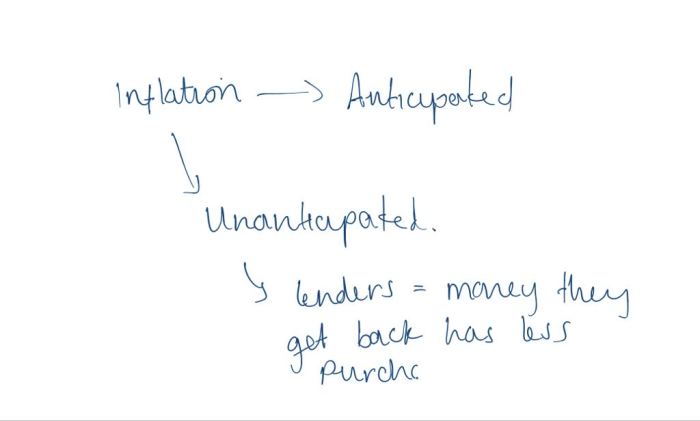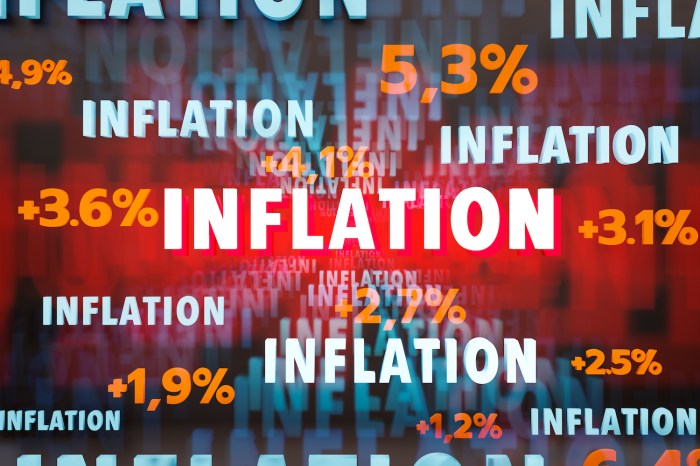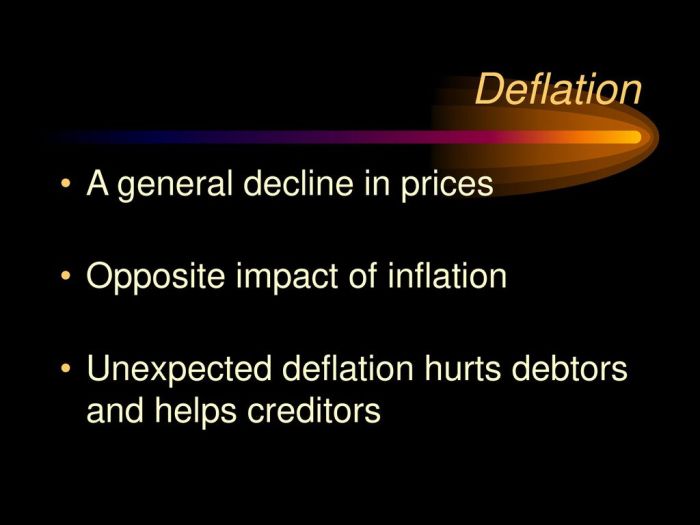Who is hurt and who is helped by unanticipated inflation – Unanticipated inflation can have a profound impact on various segments of society. This article examines the disparate effects of inflation on individuals, households, businesses, governments, and central banks, providing insights into who bears the brunt of its consequences and who may find themselves in a more advantageous position.
Who is Hurt and Who is Helped by Unanticipated Inflation

Unanticipated inflation can have significant consequences for individuals, households, businesses, and governments. It is essential to understand how inflation affects different groups in order to develop appropriate policies to mitigate its negative effects.
Individuals with Fixed Incomes
Individuals with fixed incomes, such as retirees or those on social security, are particularly vulnerable to unanticipated inflation. As the cost of living rises, their fixed incomes lose purchasing power, making it more difficult to afford basic necessities. This can lead to financial hardship, reduced quality of life, and increased stress.
- Retirees may have to reduce their spending or rely on savings to make ends meet.
- Individuals on social security may face challenges accessing healthcare or other essential services.
- Fixed-income earners may have difficulty saving for the future or planning for retirement.
Low-income Households
Low-income households are disproportionately affected by unanticipated inflation. They often spend a larger share of their income on basic necessities, such as food, housing, and transportation. When the cost of these necessities rises, low-income households may have to make difficult choices about which expenses to cut.
- Families may have to choose between buying food or paying rent.
- Individuals may have to work longer hours or take on additional jobs to make ends meet.
- Low-income households may face homelessness or food insecurity.
Businesses, Who is hurt and who is helped by unanticipated inflation
Unanticipated inflation can also have a significant impact on businesses. Rising costs can lead to decreased profitability, reduced production, and job losses. Small businesses are particularly vulnerable to these effects.
- Businesses may have to raise prices to cover increased costs, which can lead to reduced demand.
- Rising costs can make it difficult for businesses to invest in new equipment or hire additional employees.
- Unanticipated inflation can lead to increased uncertainty and volatility in the business environment.
Popular Questions
Who is most vulnerable to the negative effects of unanticipated inflation?
Individuals with fixed incomes, low-income households, and those with limited access to financial resources are typically the most vulnerable to inflation.
How can businesses protect themselves from the adverse effects of inflation?
Businesses can employ strategies such as adjusting prices, reducing costs, and hedging against inflation to mitigate its negative impacts.
What role does the government play in addressing unanticipated inflation?
Governments can implement monetary and fiscal policies, such as raising interest rates and reducing government spending, to control inflation.

